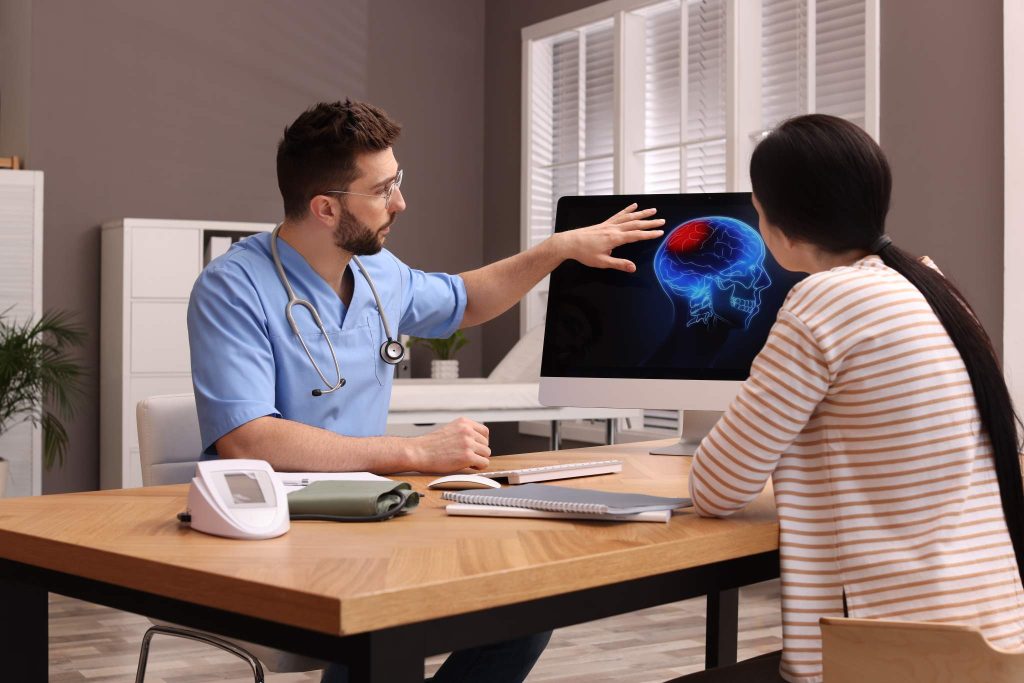 With nearly 65 million Americans reporting back-related pain, it is no wonder it is the leading cause of disability in the United States. The back is composed of muscles, ligaments, bones, nerves, and discs. Unwanted strain and stress are being placed on backs around the country due to increased use in computers and even cell phones.
With nearly 65 million Americans reporting back-related pain, it is no wonder it is the leading cause of disability in the United States. The back is composed of muscles, ligaments, bones, nerves, and discs. Unwanted strain and stress are being placed on backs around the country due to increased use in computers and even cell phones.
A decline in posture is occurring in our society as we engage in an overabundance of cell phone use and long days in front of a computer. Without proper treatment for your back, your health can face serious risks.
Preventative Action Matters
Understanding prevention techniques and identifying risk factors can go along way in managing your health. Having good posture is more than just making yourself presentable, it’s about saving your back and decreasing your risks of injuries.
Phones and Posture
With 80 percent of American workers suffering from some back pain in their lifetime, there must be some commonality in all these injuries. As cell phone use is prevalent across a wide range of demographics, these individuals are at a higher risk for developing back pain as they may slouch and stare down at their phones putting added pressure onto their back and neck. Poor posture can lead to conditions such as arthritis, nerve pain, and headaches.
Think about it: the average human head weighs about 10 to 12 pounds. However, for every 15 degrees forward that we lean our head, the more weight being distributed that our neck needs to sustain. The weight distribution is as follows:
- 15 degrees forward feels like 27 pounds
- 30 degrees forward feels like 40 pounds
- 45 degrees forward feels like 49 pounds
- 60 degrees forward feels like 60 pounds.
As the head and neck are placed at such a high angle, the spine is at an increased risk of misalignment, which can mean more than just a stiff neck or bad back. With the added strain on the neck, muscle spasms, pinched nerves, and even herniated discs are possible injuries. If left untreated or lifestyle changes are not made, epidural injections and surgery may be in the near future.
Sitting For Extended Time
The office life may seem like a comfortable work setting and one that would keep you safe from injury, however, that is not the case. Back pain can arise in office workers if they remain seated at their desks for extended periods of time. Sitting for 8 hours a day can have adverse effects on the back and neck. The good news is there are ways to prevent these types of injuries.
- When sitting, avoid crossing your legs as this can later your posture and affect your pelvis, lower back, and hips. Keep your feet planted on the floor and shoulders back to avoid slouching.
- Get moving! To get the blood pumping, take a walk, whether it be to the water cooler, bathroom, or even to pick up papers off the printer. Stretch your muscles either at your desk or stand up and allow yourself a few minutes to get your muscles loose to avoid tension. This may seem like it is taking unnecessary time out of your day, but your body will thank you and having less or minimal discomfort while at wor will lead to higher productivity.
- Ensure your workstation is conducive to creating correct posture. What you sit in is also critical for success, so ensuring that your chair is the proper fit for you can also go along way in managing your health. If you find yourself looking down at your computer, raise your chair, so you are at eye level, minimizing the angle of your neck.
- Be mindful. When using a phone or other device, be aware of the position your body is in. Relax your shoulders, so they aren’t rounded or pulled backward. Keep your elbows close to your body and bent between a 90 and 120-degree angle.
Creating Strong Posture
Posture is more than just having a straight back and standing tall. Good posture can lead to a healthier and happier you. From stronger muscles to better joint care to higher energy levels – paying attention to your posture is the easiest way to take a preventative approach in your health. Recommendations to help keep your spine and neck in tip-top shape include:
- Stand up straight and tall
- Make sure your shoulders are resting in line with your hips – not slouched or pulled back
- Head should be straight and level with the floor
- Stomach pulled in
- Weight should be mostly on the balls of your feet
- Feet shoulder-width apart
- Arms should hang naturally at the sides
If you understand how important posture can be for your health and work diligently to improve it but seem to fall short, this could be due to a lack of strength in your back. In order to have good posture, some may need to focus on exercises that can build core strength as well as strength in the back, chest, and shoulders, which will help with proper alignment.
Other factors such as smoking can have adverse effects on your spine as blood flow is restricted and can affect the spinal tissue. Sleep is important for a healthier you, and you may find that a firmer mattress will improve back pain, leading to better posture. Maintaining a healthy weight is also imperative as added weight can cause strain on the back.
Posture can go along way in improving your overall health. If you are looking to improve your health and decrease back pain, contact our Atlanta orthopedic doctors today at (404) 855-2141 to schedule an appointment.





